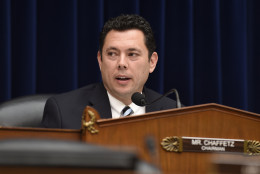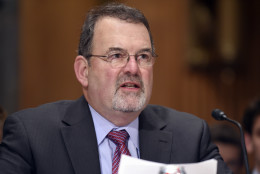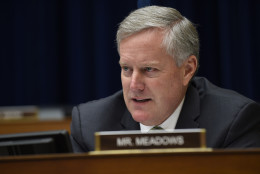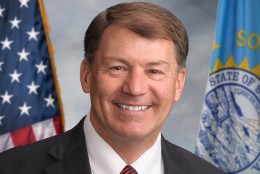Ask the CIO
-
Rep. Jason Chaffetz (R-Utah), chairman of the Oversight and Government Reform Committee, said he was warming up to the idea of the fund, but wants assurances that the money will be spent wisely and receive a return on investment.
May 26, 2016 -
Austin Adams, vice president for public sector for Alfresco, highlights how agencies can improve the way they manage information in meeting a host of the administration’s requirements.
May 25, 2016 -
Federal CIO Tony Scott said new data from government contractors shows billions of dollars are going to maintain hardware and software that either is no longer supported by the manufacturer or will no longer be supported in the next three years.
May 25, 2016 -
Commerce, Energy, Labor and NASA told House lawmakers how they each are meeting the spirit and intent of the IT reform law.
May 23, 2016 -
The House Oversight and Government Reform Committee will hold a hearing May 25 on legacy IT systems where Federal CIO Tony Scott will have maybe the administration’s best chance to make its case for Congress to support the IT Modernization Fund.
May 23, 2016 -
In a step that may go some way toward reducing some of the red tape between the Defense Department and cloud computing vendors, the Department of the Navy (DoN) said last week that the Navy and Marine Corps can sign off on their own business cases for migrating to commercial cloud vendors without seeking higher-level approval.
May 23, 2016 -
Michael Jeffries, the chief information officer of the Federal Labor Relations Authority, said version 2 of the agency’s e-file system is based on user feedback and needs.
May 19, 2016 -
House lawmakers are set to release the second scorecard grading agencies' implementation of the Federal IT Acquisition Reform Act (FITARA) and the progress across all four categories is limited.
May 17, 2016 -
Kareem El-Alaily, managing director at Censeo Consulting, and Richard Beutel, principal at Cyrrus Analytics, make the case for adding new metrics to the FITARA scorecard.
May 17, 2016 -
The continuous diagnostics and mitigation (CDM) program is relying on a blanket purchase agreement approach that isn’t as flexible as DHS and GSA officials thought it would be.
May 16, 2016 -
Federal agencies like the Internal Revenue Service are finding that they must balance an increase in the amount of data they have to secure while providing safe access when that information is needed.
May 10, 2016 -
The Federal Deposit Insurance Corporation revealed five instances in which outgoing employees inadvertently downloaded information onto their personal storage devices. FDIC officials said the agency is conducting a 60-day review that includes additional employee training and the application of encryption software to help prevent future breaches.
May 09, 2016 -
Sen. Mike Rounds (R-S.D.) wants the Obama administration to figure out when a cyber attack is considered an act of war.
May 09, 2016 -
The National Institute of Standards and Technology released a second draft of Special Publication 800-160, a guidebook for agencies to build cybersecurity processes into their day to day operations.
May 05, 2016 -
The Homeland Security Department is about to roll out a new series of incentive payments to lure cyber experts from the private sector and keep them in the civil service.
May 03, 2016
















